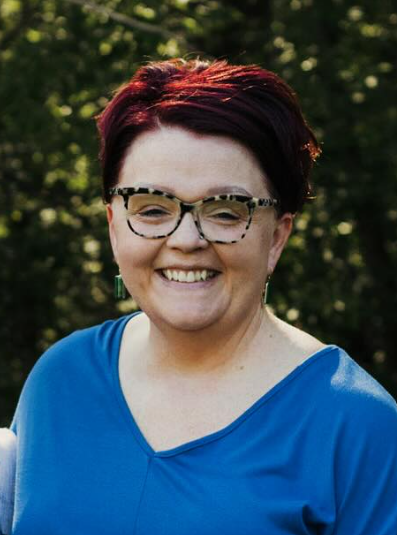As a passionate advocate for Catholic education, I am honored to seek election to the Greater St. Albert Catholic School Board. My journey is deeply personal — I’m a proud former student of this district, a former teacher who has walked alongside students in the classroom, and a parent of two children currently attending GSACRD schools. I’ve served as a Parent Council Chair, Business Analyst, and in numerous community volunteer roles, and each opportunity has strengthened my belief in courageous leadership, data-informed decision-making, and the courageous work our staff does day in and day out.
I’ve seen firsthand the incredible work our teachers, administrators, and support staff do every day — nurturing not only academic excellence, but also the spiritual and moral development of our students. I believe our staff deserve more than words — they deserve action. I’m ready to stand up, speak out, and work collaboratively to ensure our schools remain places of education for all learners and a place of community connection.
Statement of beliefs
As a school board trustee, I believe in building an inclusive, responsive education system where every student is seen, supported, and empowered to thrive. I will work to enhance support for diverse learners by expanding access to wraparound services and inclusive strategies like Universal Design for Learning. I will champion staff well-being and professional growth through mental health supports, mentorship programs, and by actively listening to teachers and staff — valuing their frontline insights in decision-making. As I often say, “The people closest to the classroom are closest to the truth.” I support expanding alternative pathways to education, including dual-credit programs, trades exploration, and flexible learning models. We must support different types of learning so every student is met where they are and empowered to grow. I will advocate for fair and sustainable funding that reflects real classroom needs. Above all, I am committed to strengthening the home-school-parish connection through initiatives like faith-based family engagement nights and parish-led service learning — because when we nurture faith and community, we nurture student success.
Priority areas
Investing in creative learning paths to support every student’s unique journey to success.
Acting now to build an inclusive, equitable, and effective education for all learners.
Fighting alongside parents and staff to fully resource classrooms for student success.
Views on funding
I believe in advocating for equitable and sustainable education funding that reflects the diverse needs of our district schools — but advocacy must be bold, persistent, and backed by action. We need trustees who are vocal, visible, and unafraid to speak truth to power. The board’s role is not just to review budgets, but to lead with urgency and accountability. That means actively engaging with frontline staff, understanding the realities in our classrooms, and using that insight to make informed, transparent funding decisions. It also means stepping up our advocacy with the provincial government — demanding the investments our students deserve and ensuring funding keeps pace with the real needs of public education. Silence and status quo won’t serve our students. Only through strong leadership, deep engagement, and relentless advocacy can we build a system that truly supports student well-being, staff success, and long-term educational excellence.
How learning conditions can be improved
Real change in education begins with courage — the courage to listen, to show up, and to act. Improving learning conditions isn’t just a policy issue; it’s a moral imperative. Teachers and students know what classrooms need: smaller class sizes, proper funding for mental health supports, educational assistants, and inclusive education. These are essentials, not luxuries. Trustees must do more than speak — they must lead. That means being visible in schools, engaging directly with educators and support staff, and learning from their lived realities. Words without action are empty. Leadership without presence is ineffective. Solving these issues requires not only strong advocacy, but also creative, community-driven solutions. We must act boldly and urgently — because our students and staff can’t wait. This is a challenge we absolutely must solve, and the time to do it is now.
How trustees and school boards can best support teachers
The well-being and professional growth of our educators are foundational to student success and the vitality of our school communities. Trustees play a critical role in fostering environments where teachers feel supported, valued, and empowered to thrive. To do this effectively, we must strengthen communication with our frontline staff—those who experience the realities of our classrooms every day.
By actively listening to teachers and school staff, trustees can make more informed decisions about funding, resources, and professional development. This engagement ensures that our policies and priorities reflect the lived experiences of educators and respond to the evolving needs of students. Investing in staff wellness and growth not only promotes a positive school culture and reduces burnout, but also affirms the dignity of the teaching vocation and enhances long-term commitment.
Views on the new K-6 curriculum
The well-being and professional growth of our educators are foundational to student success and the strength of our Catholic school communities. When teachers feel supported, valued, and equipped to grow, they are better able to inspire and nurture the students in their care. But support must go beyond wellness and professional development—it must also include trust in their expertise.
We do not ask medical professionals to design training programs for a trade, and likewise, we should not rely on government staff without classroom experience to design curriculum for our students. Teachers are the professionals who understand how students learn, what works in the classroom, and how to adapt curriculum to meet diverse needs. Yet, the current curriculum development process has largely excluded practicing teachers from meaningful participation. While some have been invited to advisory roles, their input is not central to decision-making. As trustees, we must do better.

